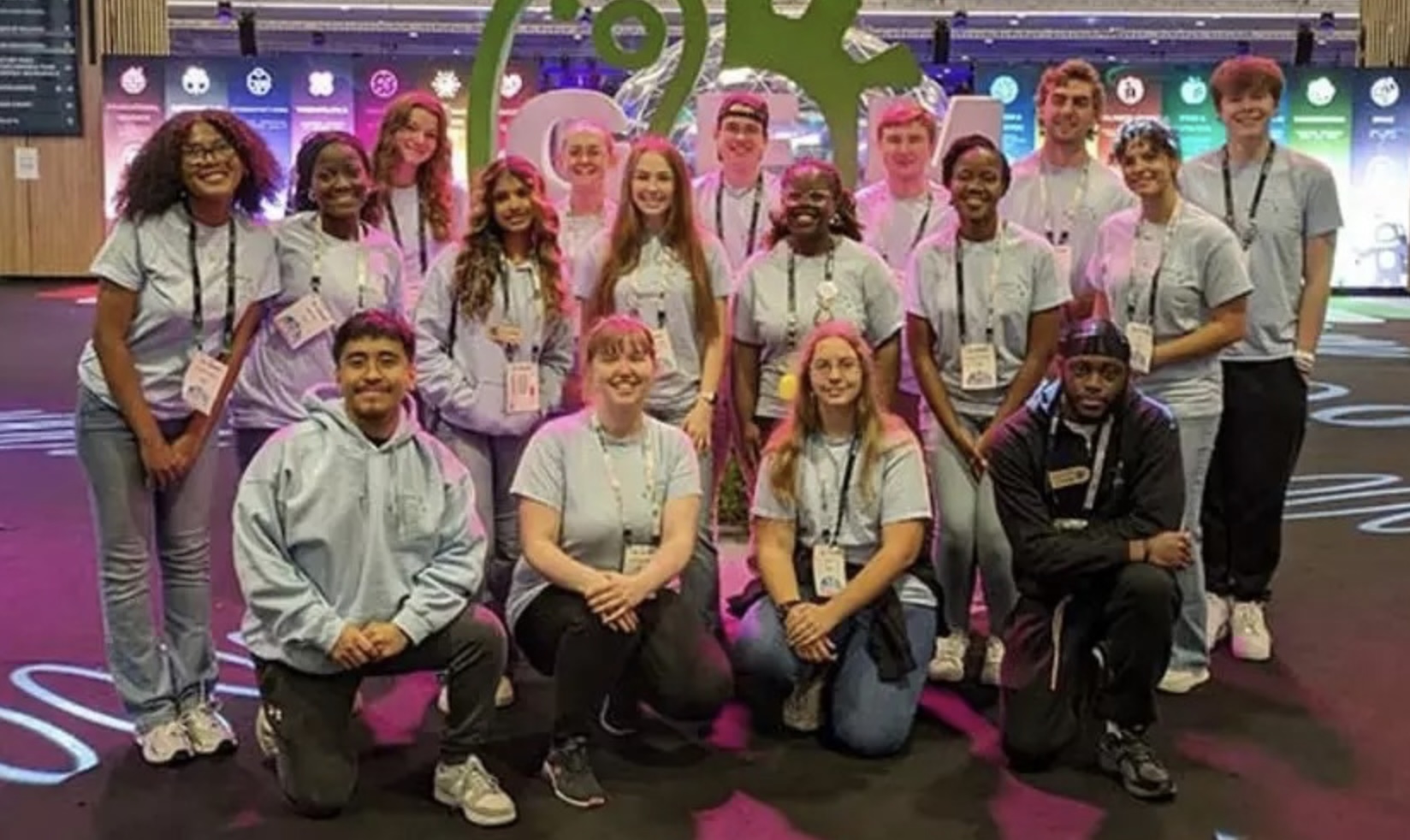Albion’s Daisy Perez-Reyes part of Oneonta team that won gold in Paris
Photo and information courtesy of SUNY Oneonta
ONEONTA – Daisy Perez-Reyes and the SUNY Oneonta iGEM (International Genetically Engineered Machine) team traveled to Paris in late October to compete in the annual iGEM Grand Jamboree and received a gold medal in its first-ever collaboration with students and faculty from Hartwick College.
Perez-Reyes of Albion is studying Sociology at SUNY Oneonta.
The iGEM Grand Jamboree is a competition where teams of students from around the world “push the boundaries of synthetic biology by tackling everyday issues facing the world.” More than 450 teams registered for the competition this year, making the 2024 Grand Jamboree the largest in iGEM history. This was the fifth competition for the SUNY Oneonta team, which won silver medals in the 2020, 2021, 2022 and 2023.
“We could not be prouder of this year’s team, not only for their success, but also for their enthusiasm and dedication to having a positive impact on the world,” said Associate Professor of Chemistry and Biochemistry Kelly Gallagher, who advises the team alongside Associate Professor of Biology Jill Fielhaber.
“Receiving a gold medal represents the culmination of countless hours spent both in and outside of the lab from every student,” said Dr. Fielhaber. “Our team’s first collaboration with students and faculty from Hartwick College makes receiving SUNY Oneonta’s first gold medal all the more significant.”
This year’s team included 16 SUNY Oneonta students from a wide variety of majors – including Biology, Biochemistry, Chemistry, Dietetics, Early Childhood/Childhood Education, Earth Science, English, Exercise Science, Philosophy, Political Science and Sociology. They worked on both the scientific and human practices aspects of the project.
Hartwick team members included majors in Biology, Biochemistry, Chemistry and Mathematics. Together under the mentorship of faculty from both SUNY Oneonta and Hartwick, the students worked on a project titled, “pHish and CHIPS,” to create a device that would neutralize water automatically after detecting the presence of extreme pH imbalances.
“It all started with thinking about what the CHIPS and Science Act meant for upstate New York and all the investment in semiconductor manufacturers that has impacted the state,” said Dr. Gallagher.
Signed into law by President Biden in August 2022, the Creating Helpful Incentives to Produce Semiconductors (CHIPS) and Science Act has accelerated the development of new semiconductor chip fabrication plants throughout the United States, with two plants planned for construction near Oneonta. Research for the team’s “pHish and CHIPS” project began in April 2024.
According to the team’s project description, water is crucial to the manufacturing process of semiconductor chips. Prior to release or recycling of these chips, fabricators purify their wastewater by adjusting the pH level and removing contaminants called polyfluoroalkyl substances (PFAS). With millions of gallons of water to process daily, real-time pH adjustment presents sustainability and water management challenges.
Part of the iGEM students’ goal was to use their knowledge of synthetic biology to design a pH-sensitive wastewater system that would “turn on” and release buffers to neutralize the water in the presence of pH extremes during the chip fabrication process.
While one part of the team was concerned with the research and development of the pH device, the human practices group investigated the ethical and regulatory landscape of the project and how to best engage public interests and concerns.
This included how to successfully approach corporate sponsorship, researching what human impacts are related to these types of waste streams, where current holes in regulations exist and what can be done to help close those gaps, and how the group can improve industry issues.
Together, the full team worked on “pHish and CHIPS” with United Nations Sustainable Development Goals Six (Ensure the availability and sustainable management of water and sanitation for all) and Nine (Build resilient infrastructure, promote inclusive and sustainable industrialization and foster innovation) in mind.
The 2024 iGEM Grand Jamboree was four days long, from Oct. 23-26, at the Paris Convention Center – a roughly 15-minute drive from the Eiffel Tower.
At the conference, the team had a booth set up and coordinated times for each member to represent “pHish and CHIPS.” With guidance from their faculty advisors, each student was prepared to answer questions during the judging session by being an expert on at least one part of their project. When they weren’t at the booth, the students explored the other presentations at the Grand Jamboree.

























































